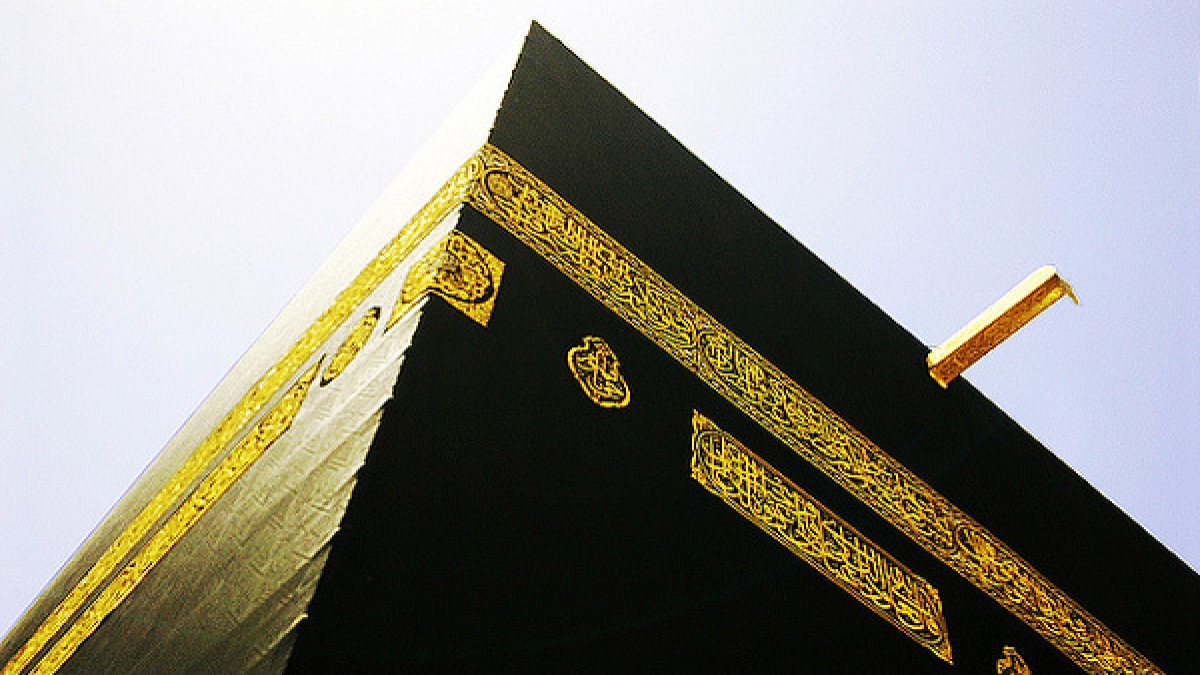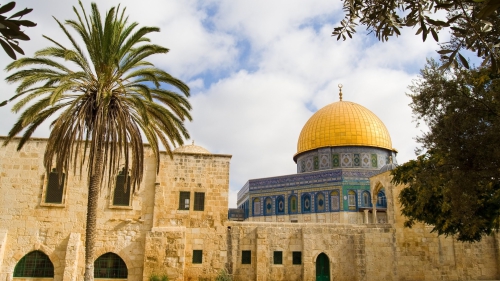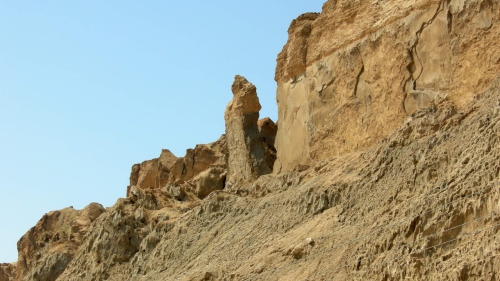Hajj: Linking Muslims with the Abrahamic heritage

I have been on the pilgrimage to Mecca three times in my life: once during the annual hajj season and twice during the off-season. This has left me savvy as I try to negotiate the physical hurdles, including massive crowds and the heat, while performing the pilgrimage rituals.
With the pilgrimage I hope to refill my always empty spiritual cup by praying and reflecting in peace. The best time to visit the Kaaba and do this, I have come to realize, is after midnight.
 |
| The brass structure in front of the Kaaba contains the stone on which Prophet Abraham stood and called people to the House of God, called Muqame Ibrahim (Station of Abraham). |
The Kaaba is the imperfect cube structure that is the center of the Grand Mosque in Mecca and is at the epicenter of the pilgrimage rites. After midnight, the crowds thin out, the heat is less oppressive and I can have a little space to sit quietly on the steps of the courtyard surrounding the Kaaba and reflect.
The Kaaba, draped in black silk cloth embroidered with Koranic calligraphy, is brilliantly lit at night. Even late, scores of pilgrims are circling the structure. The sounds of the Koranic verses they are reciting wash over me like ocean waves. There is the faint odor of a detergent that was used to wash down the marble floor of the courtyard. The place is clean indeed.
I focus on the Kaaba, imagining the scene when it was being built. I try to see Prophet Abraham, by then an old man, and his son Ishmael, as they stood side by side building the structure, which the Koran describes as "The First House (of worship) appointed for mankind."
Hajj, an annual pilgrimage Muslims must perform once in their lifetime if they can afford it, is a journey to what Muslims believe is this first house of worship. The spot where Abraham stood to build the Kaaba is marked by a small structure called the "Station of Abraham." As they built the walls of the Kaaba, the Koran states, the prophet and his son prayed: "My Lord, make this a City of Peace."
Most people familiar with Islam may recognize hajj as one of its five pillars, but they may not know its primary association with Abraham. Several of the hajj rituals--such as running between the hills of Safa and Marwa, which are a few hundred yards from the Kaaba, and the stoning of the three pillars that represent the devil--are also linked to Abraham.
I thought about my fellow pilgrims running between the two hills in what was once a desert, re-enacting the desperate search for water by Ishmael's mother, Hagar.
I thought about us stoning the pillars, symbolically warding off evil, and emulating Abraham's stoning of the devil each of the three times the devil tried to stop him from fulfilling his duty to God.
And I thought about the celebration of Eid al-Adha, "the festival of the sacrifice," on the last day of hajj. The holiday commemorates Abraham's willingness to sacrifice his dearest possession, his son, at God's command.
 |
| Ziggurat in Ur - A form of temple tower common to the Sumerians, Babylonians and Assyrians of ancient Mesopotamia.Situated near the town of Nasiriya, about 365 km south of Baghdad, Ur, which means a city in the Sumerian and Akkadian languages, is one of Iraq's most imposing ancient sites. It was the capital of the ancient civilization of Sumeria and the birthplace of Prophet Abraham "Ibrahim Al-Khalil" (peace be upon him), |
Abraham's willingness to sacrifice all for God is admired by all three Abrahamic faiths, Judaism, Christianity and Islam. And the theme of connecting the three religions as part of the Abrahamic tradition runs all through the Koran.
Jews and Christians are referred to as "People of the book." On more than one occasion the following verse appears in the Koran: "Verily they who believe and they who are Jews, Christians . . . whoever believes in God and the Last Day, and do that, which is right, shall have their reward with their Lord. Fear shall not come upon them and neither shall they grieve."
Prophet Muhammad wanted Muslims to remind themselves constantly of this link to Abraham. His companions asked him how they should invoke the blessings of God upon him. He replied, "(First) Say; May the blessings of God be upon Muhammad and his progeny" and then say "May the blessings of God be upon Abraham and his progeny." This invocation is part of Muslims' daily prayers.
The time I spent reflecting at the footsteps of Kaaba has reinforced my belief that it is essential for the "progeny of Abraham" to be conscious of their common heritage. Appreciation of this Abrahamic tradition can unite Jews, Christians and Muslims in attaining a dream of peaceful coexistence. Muslims are reminded of it during hajj and in their daily prayers. Sitting on the steps of the Kaaba, I found myself echoing Abraham with my prayer: Lord, bring peace to this world.
Javeed Akhter, is the Executive Director of the Chicago based International Strategy and Policy Institute and he is the author of the book "The seven phases of Prophet Muhammad's Life,"
Click Here to read book review of The seven phases of Prophet Muhammad's Life
Topics: Hajj, Kabah, Muslims, Prophet Ibrahim (Abraham)
Views:19919
Related Suggestions
May Allah (swt) increase our unity and dissolve our
restricting differences. Takbir!
articles I've read. Very well written and the
essence of it kept me engaged to the end.
Thank you for sharing your experience.
Shalom
This distortion of Order and disrespect of the already established blessings is one of the major causes of suspicion and disunity to this very day.
Whereas noor says [The real "Christians" and "Jews" shared our beliefs], it would have been other way round like "We share the beliefs of real Christians and Jews". Moreover, it is inappropriate to use the word "real" to address the children of reality. It should have been "realized" instead, for we are the children of God (real personality for the believer): some have realized and others have not realized.
Babandi A. Gumel mentions:
1. Then he said Well Banu Maleeh is worshipping the angels, the Christians worship Jesus (Isa) and the Jews worship Ezra.
2. Christianity and Islam virtually have followers all over the World but only Islam sticks to that monotheistic heritage of Abraham.
The above are personal views or interpretation of one person about the others. I do not know what Banu Maleeh do but am sure that we Christians do not worship Isa as son of man but as the salvator, the Son of God. His name Y'Shua means God the Savior. So we worship only God who saves from judgment and damnation through Isa (Jesus) the mediator.
Jews neither worship Ezra either way to the best of my knowledge. Ezra was a Jewish National figure representing restoration after their captivity and destruction of the Temple. So they worship, like Christians, the God who restores and builds after destruction. Let there none come in between us in our devotion to God and worshipping Him cooking up false interpretations.
The real "Christians" and "Jews" shared our beliefs

















